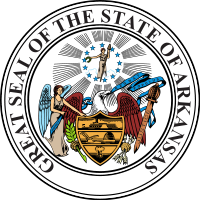Legislative Intent in Arkansas: A Talk With Senator Davis - Community Broadband Bits Podcast 356

It’s mid-May and while some states’ legislatures are still in session, other’s have already debated new legislation, voted, and adopted new laws. This week, we talk with one Senator from Arkansas who, along with her colleagues, are interested in bringing better broadband to rural areas of her state, Breanne Davis.
During the 2019 session, she introduced SB 150, which was ultimately adopted. The bill makes slight changes in Arkansas law that prevent local communities from developing infrastructure to be used for broadband. She and Christopher discuss why she and her colleagues decided it was time to ask lawmakers for the change after years of depending on large ISPs who weren’t living up to promises to expand broadband in rural areas.
Christopher and Senator Davis discuss some of the details of the bill and address the amendments that changed a broad piece of legislation to a targeted law that allows local communities to apply for federal grant funding. She explains some of the reasons for the amendments and how those changes fit into the vision she and her colleagues in the legislature have for the future of Arkansas.
This show is 21 minutes long and can be played on this page or via Apple Podcasts or the tool of your choice using this feed.
Transcript below.
We want your feedback and suggestions for the show-please e-mail us or leave a comment below.
Listen to other episodes here or view all episodes in our index. See other podcasts from the Institute for Local Self-Reliance here.
Thanks to Arne Huseby for the music. The song is Warm Duck Shuffle and is licensed under a Creative Commons Attribution (3.0) license.



 Even though large incumbent ISPs have collected federal grant funding in the past, deployment in Arkansas has been inadequate to connect all Arkansans. According to the FCC, connectivity to households is
Even though large incumbent ISPs have collected federal grant funding in the past, deployment in Arkansas has been inadequate to connect all Arkansans. According to the FCC, connectivity to households is